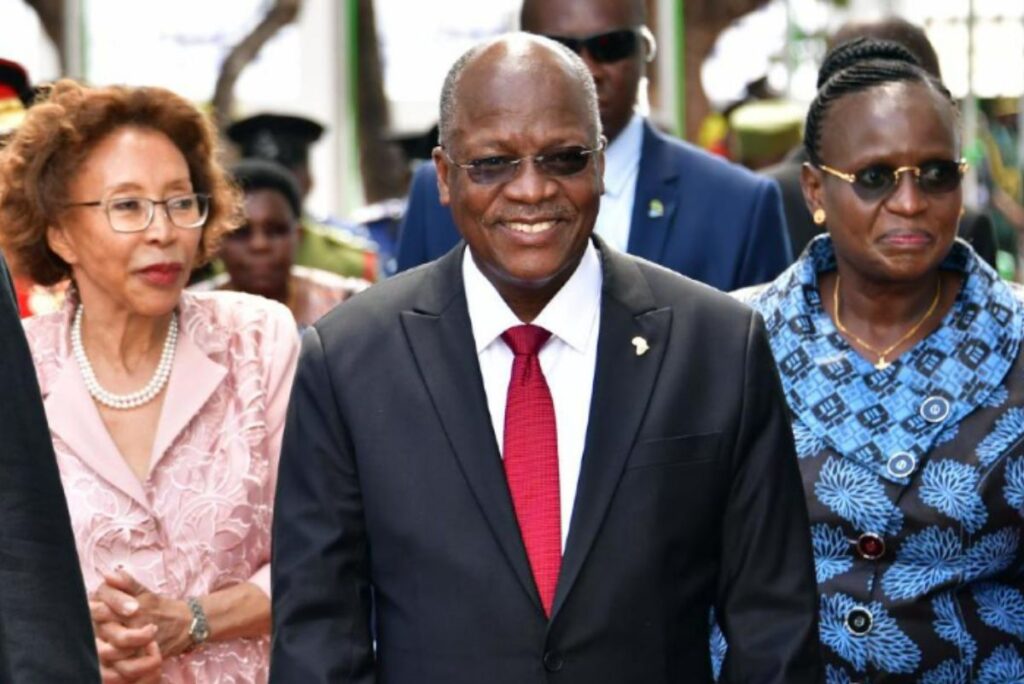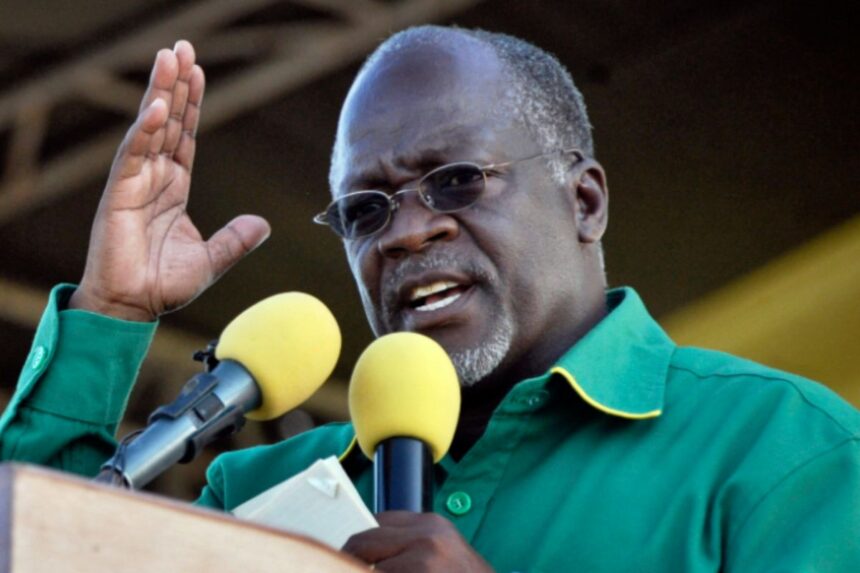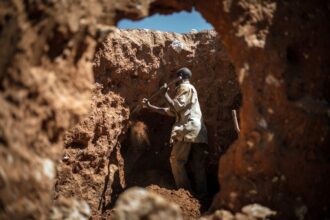John Magufuli, Tanzania’s fifth president, left a powerful mark on his nation and the world. His unexpected death in March 2021 ignited a firestorm of conspiracy theories, with whispers suggesting potential Western involvement due to Africa’s abundant natural resources.
In a world where resources shape power, Africa remains a battleground of interests, with its leaders at the forefront of this tussle.
John Juma
Magufuli: The ‘Bulldozer’ Against Western Interests
President Magufuli’s nickname, the “Bulldozer”, was well-earned. He was uncompromising, especially in policies which seemed to distance Tanzania from Western interests. The most notable was his skepticism of Western COVID-19 vaccines. While global leaders vied for vaccine procurement, Magufuli openly questioned their credibility, urging reliance on traditional remedies and faith.

Yes, some foreign mining entities threatened to pull out investments, citing unfavorable business conditions. However, by renegotiating contracts, Tanzania secured larger shares from its resources, which in the short term increased national revenue, but it raised concerns about long-term foreign investment.
Economic Dissonance and Tanzania’s Resources
But it wasn’t just health policies that set Magufuli apart. He was audacious in his economic reforms, particularly concerning foreign mining entities. Magufuli accused several of them of tax evasion, leading to a seismic shift in how business was done. By renegotiating contracts, he ensured that Tanzania’s vast resources, like gold and diamonds, primarily benefitted Tanzanians.
Africa: A Lure for the Powerful
Historically, Africa’s immense natural resources have always been coveted. From colonial-era exploits to the modern race for rare minerals essential for technology, the continent remains a global focal point. Tanzania’s wealth, especially in rare minerals vital for emerging tech industries, makes it an invaluable player in this global contest.

Officially, Western governments respected Tanzania’s sovereignty to make its own policy decisions. However, there were instances of subtle criticisms, especially concerning human rights and governance issues.
The Intricacies of the Puppet Leader Theory
The puppet leader theory isn’t new. It suggests that powerful nations, to ensure unhindered access to resources, might install amenable leaders in strategic countries. With Magufuli’s death, President Samia Suluhu Hassan took the reins. Though there’s no direct evidence, whispers question if she might be more amenable to Western influence.
The Shrouded Circumstances of Magufuli’s Death
The official narrative attributes Magufuli’s death to heart complications. But mysteries persist. His sudden departure from the public eye before his death announcement fueled speculations.
Sovereignty is not just a right, but a responsibility to protect and prioritize a nation’s interests against a backdrop of global power plays.
Ally Mohamed
This absence, coupled with Tanzania’s opaque handling of the situation, gave room for alternative theories to flourish.
Evaluating the Other Side
Every theory requires critical examination. Several African leaders, just like their counterparts globally, have faced unexpected deaths. Without substantial evidence pointing towards external influence or foul play, it’s paramount to exercise caution and rely on verified facts.

The Tanzanian public’s reaction to Magufuli’s policies was mixed. Many hailed him as a nationalist hero who prioritized Tanzanian interests, while others expressed concerns about potential international isolation and the broader implications for Tanzania’s foreign relations and economy.
Implications for Africa’s Sovereignty
Magufuli’s death and the resultant theories underscore a broader theme of Africa’s ongoing struggle for autonomy and sovereignty. Whether true or not, the very existence of such theories points to a history of external interference and the challenges African nations face in charting their own destinies. The intricate narrative surrounding John Magufuli’s death is emblematic of the larger story of Africa’s place in the world, its vast resources, and the international interest it attracts. While speculation will persist, what remains essential is the pursuit of truth, ensuring Africa’s narrative remains in its own hands.





















